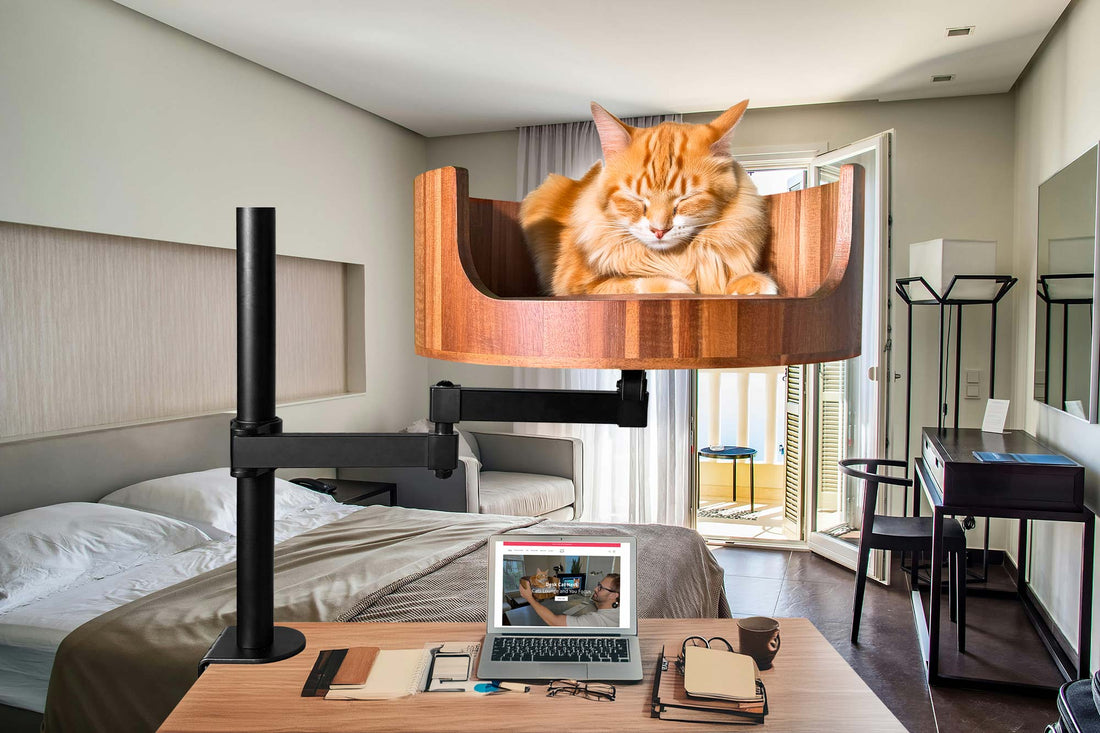
Why My Kitten Bite Me: Understanding Feline Behavior
Share
Have you ever wondered why your adorable kitten suddenly turns into a little shark, biting and nipping at your fingers or toes? Understanding feline behavior can help decipher these playful, yet sometimes painful, actions. In this article, we will explore the reasons behind why kittens bite, how to differentiate between what is normal play behavior and aggression, and tips on how to train your kitten to curb their biting habits.
Desk Cat Nest is a popular online community for cat lovers, providing valuable insights into feline behavior and care. As a proud cat parent, it can be concerning when your furry companion starts displaying behaviors that are confusing or even alarming. Learning to interpret your kitten's cues and body language can greatly improve your bond with them and create a harmonious living environment. Join us as we delve into the fascinating world of feline behavior and discover the reasons behind why your kitten may be biting you.
1. Kittens may bite during play as a way to practice hunting skills, but it's important to redirect this behavior to avoid reinforcing it.
2. Understanding feline body language can help owners anticipate and prevent aggressive behaviors in kittens.
3. Socialization and positive reinforcement are crucial for teaching kittens appropriate behavior and building trust between cat and owner.
4. Providing mental and physical enrichment, such as interactive toys and designated playtime, can keep kittens stimulated and prevent boredom-related biting.
5. Seeking advice from a veterinarian or animal behaviorist can help address persistent biting issues in kittens.
Causes of Kitten Biting
Kittens may bite for various reasons, including play aggression, fear, or pain. Play aggression is a common behavior in kittens, as they use their mouths to explore their surroundings and interact with their environment. They may also bite as a way to signal discomfort or pain, especially if they have an underlying health issue. Fear can also trigger biting behavior in kittens, as they may feel threatened or cornered in certain situations.
Training Techniques to Prevent Biting
Training your kitten to prevent biting can be a challenging but essential task for pet owners. One effective technique is to redirect your kitten's biting behavior by offering them appropriate toys or objects to chew on instead. This teaches them that biting humans is not acceptable behavior. Additionally, positive reinforcement can be used to reward good behavior and discourage biting. Consistency and patience are key when using training techniques to prevent biting in kittens.
Seeking Professional Help
If your kitten's biting behavior becomes excessive or unmanageable, it may be necessary to seek professional help from a veterinarian or animal behaviorist. They can help identify the underlying causes of the biting behavior and develop a customized training plan to address it. In some cases, medication or other interventions may be necessary to manage aggression or fear-related biting in kittens. Seeking professional help is essential to ensure the safety and well-being of both the kitten and its owners.
Case Studies
One common scenario in which kittens may bite is during playtime. For example, a kitten may become overstimulated during play and start biting as a way to release pent-up energy. In this case, owners can redirect the kitten's biting behavior by introducing interactive toys or engaging in play sessions that mimic hunting behaviors. Another example could be a kitten biting out of fear or discomfort during handling. In this situation, gradual desensitization and positive reinforcement can help the kitten learn to trust and feel more comfortable in such situations.
Desk Cat Nest FAQ
Why does my kitten bite me?
Kittens may bite for a variety of reasons, including teething, playfulness, fear, or aggression. It's important to understand the underlying cause in order to address the behavior effectively.
How can the Desk Cat Nest help with my kitten's biting behavior?
The Desk Cat Nest provides a comfortable and safe space for your kitten to rest and play. Having their own designated area can help reduce stress and potential triggers for biting behavior.
Is the Desk Cat Nest suitable for all kitten breeds?
Yes, the Desk Cat Nest is designed to accommodate kittens of all breeds and sizes. It offers a cozy and inviting space for them to relax and unwind.
Can the Desk Cat Nest be used for training purposes?
While the Desk Cat Nest is primarily for providing a safe space for your kitten, it can also be used as a training tool to help redirect their biting behavior. By encouraging positive interactions in the nest, you can teach your kitten appropriate ways to play and interact with you.
How do I introduce my kitten to the Desk Cat Nest?
It's important to introduce the Desk Cat Nest gradually to your kitten. Place their favorite toys or treats inside to entice them to explore the space. Over time, they will learn to associate the nest with a positive and comforting environment.
In conclusion, investing in a Desk Cat Bed can greatly help prevent your kitten from biting you. By providing your feline friend with a designated cozy space of their own, they will be less likely to exhibit aggressive behaviors towards you. This not only creates a safer and more harmonious environment for both you and your kitten, but also promotes positive bonding experiences. The Desk Cat Bed offers comfort, security, and a sense of ownership for your pet, making it a valuable choice for any cat owner looking to curb biting behaviors.


















































